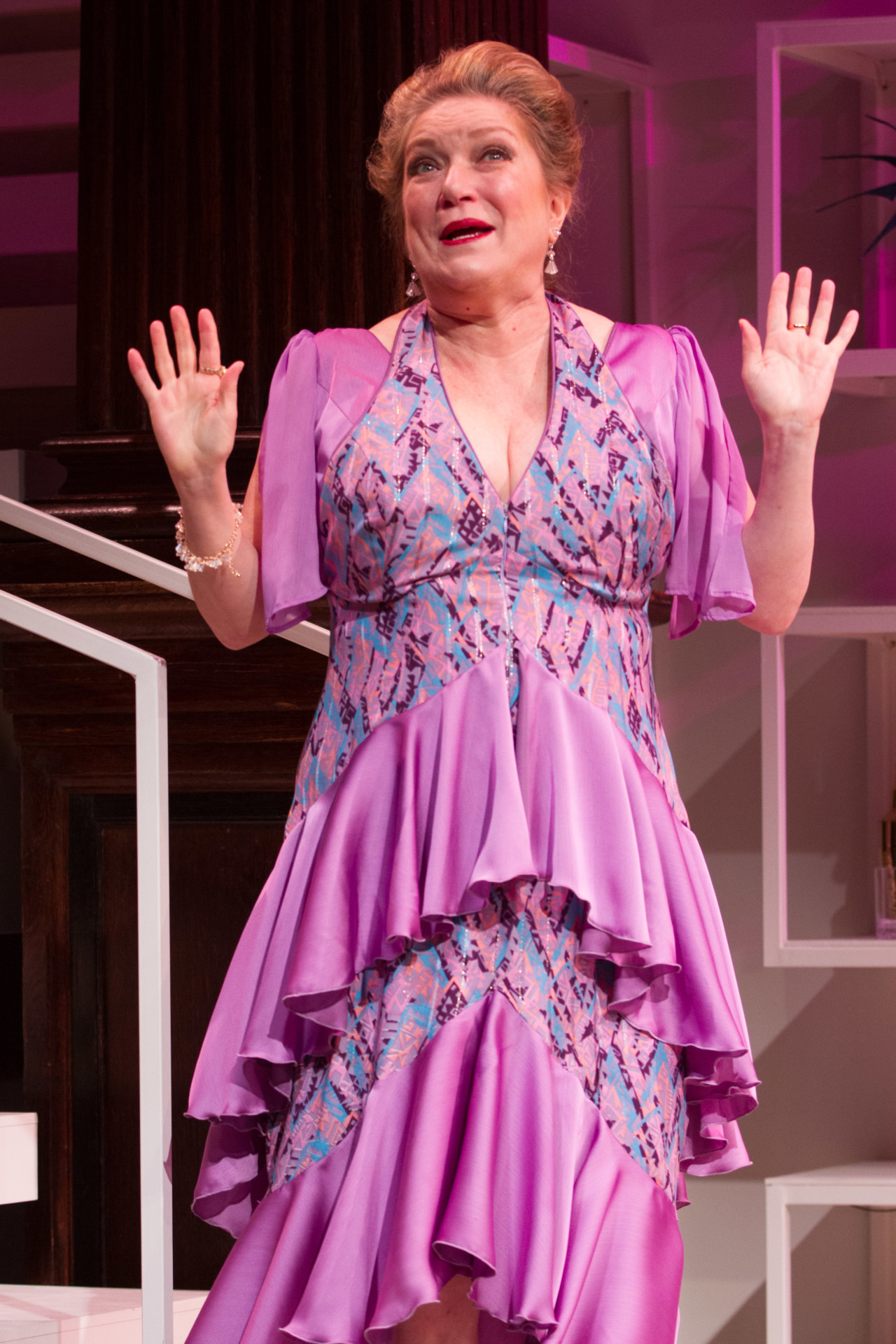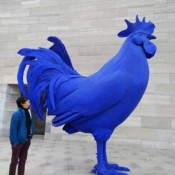Film and television are full of innocuous lead characters. Think Humbert Humbert, Keyser Soze, Tony Montana, Iago, or for those more TV oriented, Walter White. These are the ones who seem barely noticeable when you first see them. Like garden furniture or wall paper, they are unremarkable and completely forgettable.
At least, that’s what they seem at first.
All the characters in the Folger Theatre’s “The Way of The World” all seem harmless — ranging from the neurotic to the doltish. The production is an adaptation of William Congreve’s “The Way of the World” – first released in 1700, during the Restoration period in England. In this version the antics are set in the 21st century, in the rich enclave of the Hamptons in New York.
Ahmad Coo is a producer and copy editor for the Global Business show on CGTN America. His analysis represents his views alone.
The play centers around Mae, a well-meaning, liberal-leaning heiress who’s worth a cool $600 million. She’s just broken up with her womanizing boyfriend Henry, who’s also from a very prominent family.
But Henry has fallen out of favor with his father and has been cut out of the family’s estate, so we see him trying to win Mae back for most of the play. However Henry’s philandering ways has completely turned Mae off.
Everyone in the play is wealthy, save for a waitress who’s trying to make ends meet by working several jobs at once. They all behave badly, insulting each other face to face or backstabbing one another every chance they get. In their version of the Hamptons, the world is a petri dish of entitlement, obscene wealth, and pettiness.
Despite this, “The Way of the World” is very funny most of the time. It helps that the play’s comedy is so physical and the whole cast is willing to ham it up. But others take it too far, such as Elan Zafir who plays Henry’s loud friend Reg who completely tapped into the cocaine-fueled persona of the late Chris Farley with mixed results.
But it’s Kristine Nielsen who steals everyone’s thunder as Rene, Mae’s insecure and seemingly clueless aunt who fumbles her way around the plot. At the beginning of the play, she tries to console her heartbroken niece — who’s thinking of giving away her fortune to the long-suffering people of Haiti.
Rene is against the idea and thinks that Mae can do good in her own country. In one of the play’s funniest scenes, Rene laments about being so tired of people saying that the one percent (the wealthiest people in the country) doesn’t do enough. Outraged, she blurts out in frustration that she’s done her part by hiring Mexicans to work on her lawn.
Mae is willing to say goodbye to her $600 million fortune because she has a broken heart. For her, nothing matters anymore because Henry, the love of her life, has cheated on her. She’s also doubly distraught because one of the women he cheated on her with was her aunt Rene.

Kristine Nielsen stars as the ever-watchful Aunt Rene in Theresa Rebeck’s comedy The Way of the World at Folger Theatre. On stage January 9 – February 11, 2018. Photo by Teresa Wood
Despite the nearly slapstick humor adopted by Theresa Rebeck in “The Way of the World” reboot, there’s something ultimately darker lurking underneath all the playfulness on stage. Rebeck also created the NBC television show/musical “Smash”. If you put the humor aside, and actually listen to the characters, they’re all scheming and plotting.
They all have ulterior motives — most of which have something to do with undermining one character or another. Surprisingly, the least conniving character is Mae. She’s sick of the life of a heiress, declaring that she’s “really, really sick of stuff.”
Towards the end, Rebeck’s version or “The Way of the World” flirts with a happy ending. The main characters find love, for the most part, in the least likely of pairings. The playwright fools the audience into buying into the adage that love conquers all, only to sucker punch us at the very end.
At the conclusion of the play, the bumbling Rene finally reveals her true self. She’s a master manipulator who bends people to her will, like a clown distracting you with silliness while while holding a razor-sharp dagger behind her back — waiting for the right time to stick it deep into your neck.
“The Way of the World” is playing at the Folger Theater in Washington D.C. until Feb. 11, 2018.
 CGTN America
CGTN America
 Rene (Kristine Nielsen) and her niece Mae (Eliza Huberth, right) find cause for great celebration in Theresa Rebeck’s The Way of the World. On stage at Folger Theatre, January 9 – February 11, 2018. Photo by Teresa Wood.
Rene (Kristine Nielsen) and her niece Mae (Eliza Huberth, right) find cause for great celebration in Theresa Rebeck’s The Way of the World. On stage at Folger Theatre, January 9 – February 11, 2018. Photo by Teresa Wood.

